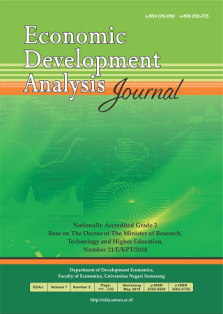The Impact of U.S. Quantitative Research Policy on Asian Macroeconomics
Abstract
U.S. Quantitative Research policies significantly impact economic variables in Asia-Pacific, including inflation, interest rates, unemployment, and exchange rate depreciation, but the causal relationship remains unclear. Understanding these policies' impact is important for economic stability and growth amid global uncertainty. Using data from the World Bank and IMF, Granger's causality analysis was used to uncover the relationships between these variables. The findings show that U.S. inflation is unrelated to unemployment in the Asia-Pacific, but The Fed's interest rates correlate with inflation and unemployment in the region. Rising US interest rates could have a negative impact on unemployment, especially for countries that depend on foreign capital or have strong economic ties with the U.S. Policy recommendations include enhancing regional cooperation, implementing efficient monetary policy, diversifying the economy, investing in workforce education and training, and evaluating U.S. policies to maintain economic stability in the Asia-Pacific.


